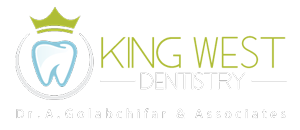Post Operative Instructions - Root Canal
After going through a root canal treatment, it is important to follow be informed on certain things during the aftercare and recovery period. Upon completing the root canal procedure, you will go home with some instructions for pain management. You will also get instructions on how to take care of your tooth while recovering from a root canal. There are a few things to bear in mind during the root canal recovery period.
After the Root Canal
You are likely to experience tenderness for a few days as the medication used to numb your mouth during a root canal wears off. You may also experience mild sensitivity in your jaw because of keeping your mouth open for an extended period during the procedure. These feelings are normal and will fade away with time. The temporary symptoms often respond well to over-the-counter medication though your dentist may prescribe some painkillers. If you had pain in your tooth prior to the root canal procedure, it might take a while for your tooth to feel normal again after the procedure.
After a root canal procedure, it is advisable to wait until the numbness in your mouth wears off before eating. This ensures that you do not bite your tongue or cheek. To prevent damage, avoid biting and chewing on the treated tooth until your dentist fully restores it. You should particularly avoid using the treated tooth to eat if you experience any form of soreness. Even if your tooth does not feel sore, it is advisable to avoid using it to chew sticky food. Sticky foods like gum, jellybeans, and caramel may affect the filling on your tooth, making it fall off. In case you notice that the filling on the treated tooth is loose and likely to fall off, contact your dentist immediately.
You may experience tenderness and sensitivity for an extended period if the tooth was infected and swollen prior to the root canal treatment. You will experience a different sensation from your treated tooth than your other teeth. However, in some instances, you should contact your dentist immediately. Contact us if you experience severe pain or soreness a few days after the root canal treatment. If there is a visible swelling inside and outside your mouth, you should contact us immediately. If your bite feels uneven after the root canal procedure, contact us right away. You should also contact us if the temporary filling or crown comes off. If you develop an allergic reaction to medication or if you experience the symptoms you had prior to the treatment, you should reach out to us immediately.
The focus of a root canal procedure is to remove unhealthy pulp and nerve from inside your tooth. The process helps to remove unhealthy tissue from inside your mouth and enhances the life of your tooth. If unhealthy tissue remains in your tooth, it may spread to the surrounding areas leading to acute pain and inflammation.
After a root canal procedure, you should expect several follow-up appointments. During the follow-up appointments, your dentist may place the final crown to restore your tooth fully. The installation of the dental crown helps to protect the affected tooth from breakage. Regular evaluation of the treated tooth helps to monitor and assess the healing process.
After the root canal procedure, you should continue taking care of your teeth. You should continue with daily brushing and flossing and regular cleanings and check-ups. If you experience any pain or swelling in the future, you should return to your dentist. With proper care, a properly treated and restored tooth may last as long as your natural teeth. An adequately treated tooth may still need further repair even many years after the first root canal procedure. However, even if you have to undergo another procedure, you can be positive that the tooth can be saved.
